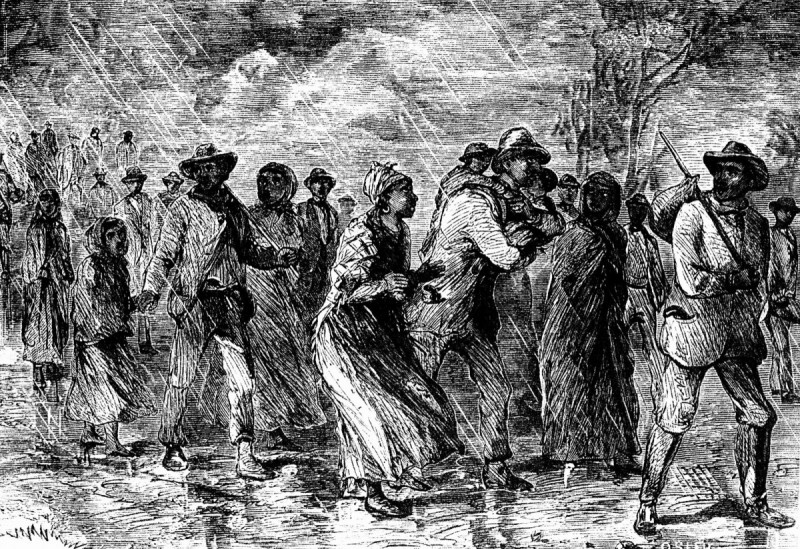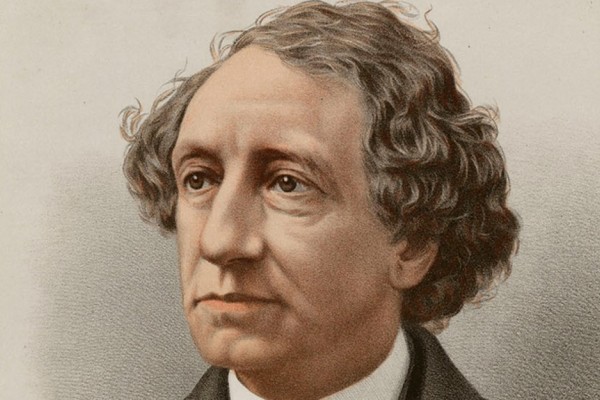Wait, Canada had slavery?
How education in Canada leaves out the nasty bits to protect its identity as an operation of the official multicultural agenda

“Fugitive Slaves Flee from Maryland to Delaware by Way of the Underground Railroad, 1850–51,” engraving by John Osler for William Still’s The Underground Rail Road: A Record Of Facts, Authentic Narratives, Letters, &c., Narrating The Hardships, Hair-breadth Escapes, And Death Struggles Of The Slaves In Their Efforts for Freedom (1872).
In 2018, on an episode of CBC’s long-running documentary show Ideas, contributor Kyle Brown questioned former Prime Minister Paul Martin about his knowledge of Canadian slavery. Martin’s response? “I did not realize that there was slavery in Canada anywhere.”
While the statement may have come as a shock to some listeners familiar with Canada’s colonial history, Martin’s ignorance reflects a wider agenda at play in Canada’s education system. How could a man who once held the highest office in the country not be equipped with the facts of historical injustice that have (and continue to) plague racialized communities throughout the country?
Martin’s historical amnesia reflects a flagrant problem in the Canadian public education system where erasure of Black and Indigenous histories have real and devastating impacts on racialized students and communities.
A contemporary tale of strategic miseducation
In late October, the CBC reported on a leaked draft of proposed changes by the United Conservative Party to the Alberta social studies curriculum. The reforms have since elicited concern, even outrage, by many curriculum experts in the province. University of Alberta professor Carla Peck, an expert in social studies curricula, calls the proposed changes “repulsive, regressive, and racist” and contends that Alberta “will be reduced to a laughing stock if the proposed curriculum revisions become a reality.”
The changes include bizarre recommendations such as the removal of all references to “equity” and the designation of content pertaining to residential schools in elementary curriculum to be “saved for later.” The draft plan simultaneously recommends topics like ancient Rome, and Homer’s The Odyssey as more age-appropriate and relevant content. As Peck notes, “the proposed content wipes out any advances made in including Indigenous knowledges and perspectives in the social studies curriculum. The little information about Indigenous peoples that is included is reduced to facts, dates, and place names.”
The social studies curriculum revisions were authored by Chris Champion, a former advisor to Jason Kenney from 2007 to 2015. In the Grade 3-4 recommendations document, Champion suggests a possible Grade 9 unit that equates residential schooling with other types of “harsh schooling in the past, inclusive of all cultures, not only Indigenous,” which he contends only applied to a “minority of Indigenous children.” This tactic of erasing and minimizing Indigenous content should come as no surprise from Champion who last year wrote an article for a publication he edits, The Dorchester Review, calling the inclusion of Indigenous perspectives “a fad.”
The recommendations reflect another backward proposal that permeates the documents: an emphasis on memorization. Long regarded as out of step with how children learn, Champion makes arbitrary recommendations calling for students to memorize various dates.
How did it come to this?
While Alberta takes the proverbial cake for regressive moves within its education system of late, the struggle to make minority voices and knowledge present in Canadian curriculum is an on-going, uphill battle. As Canadians, we pride ourselves on our multicultural landscape, espousing diversity along with equality and justice as pillars of our identity. In adopting this policy and further embedding it as law in 1988 under the Canadian Multiculturalism Act, the strategic effect has been a painting over of the bad parts of our history that continue to plague racialized minorities. This assumed equality has denied the material impacts of race and racism, as the issues are understood as relics of the past that no longer warrant contemporary redress.
As Alberta has blatantly demonstrated, our educational systems are burdened by the impact of multicultural rhetoric that seeks to whitewash provincial curriculums under the helpful guise of equality. Professor Verna St. Denis of the University of Saskatchewan notes that the impact of instituting multiculturalism in our schools makes it possible to “trivialize Aboriginal content and perspectives, and at the same time believe that they are becoming more inclusive and respectful.”
The cost of this colourblind approach to education through the erasure and exclusion of certain content, perspectives and knowledge is paid for by Black, Indigenous and other racialized students who are neither represented nor properly resourced in the education system. This approach enables an acceptance of the continuation of inequality that is already embedded within society.
During the same Ideas episode, Professor Charmaine Nelson, who was recently named the Canada Research Chair in transatlantic Black diasporic art and community engagement, shared her yearly ritual of conducting a survey of her class in which she probes her students for their knowledge of slavery in Canada. Nelson notes, “I never had a Canadian student enter my class on day one knowing that slavery transpired in Canada.”
While the majority of Canadians, including Nelson’s students, can attest to a general knowledge of the Underground Railroad—a movement that accounts for approximately 30 years of Canadian history—most are ignorant of a long history of slavery in their country. Nelson is left to ask: “What does it take to erase 200 years of history from the collective consciousness of a nation, but to enshrine three decades?”
A war on words
If the battle over the curriculum in Alberta tells us anything, it is that political neutrality is a myth in Canada’s education system. UCP leader Jason Kenney ran on a pledge to “stop the NDP’s ideological rewrite of the school curriculum… to develop a modern curriculum that is focused on essential knowledge and skills instead of political agendas and failed teaching fads.” Clearly, political fights are commonplace on the educational battlefield and often waged at the expense of research and expertise-backed progress.
A regressive curriculum is one that mirrors this political warfare and remains insensitive and blind to power dynamics—thus continually failing to empower marginalized students. This move toward a reactionary curriculum highlights an urgent need for educators to implement pedagogical practice that disrupts colourblind and power-blind stances. The proposed recommendations for changes to the Alberta social studies curriculum, however, represent further restrictions on teachers to engage in critical, reconciliatory, and anti-racist pedagogies thereby excluding and oppressing racialized students through approaches to teaching.
Under the veil of multiculturalism, Canada’s education system continues to exclude, distort and erase the history and perspectives of the Black, Indigenous and People of Colour (BIPOC) community, to the ultimate detriment of racialized students. Multiculturalism assumes that equality of treatment is sufficient, but it stealthily avoids addressing factors that would lead to equality of outcomes. It is imperative to challenge the silences in pedagogy, the omissions in content, and include perspectives and knowledges that ensure racialized students see themselves in the curriculum.
Amy Kellner is an educator, occasional writer, and graduate student based in Toronto. Her research interests focus on issues of racism, colonialism, and exclusion in curriculum and pedagogy in the Canadian public school system.










